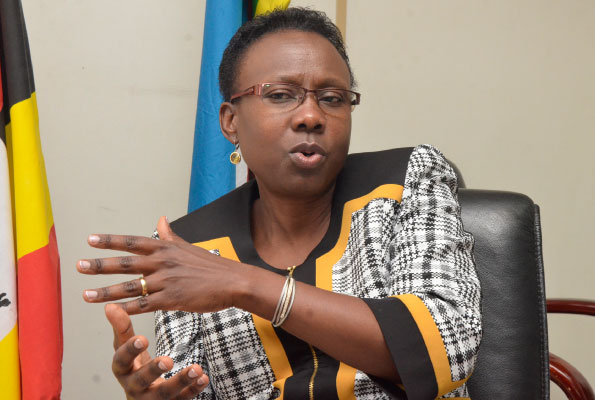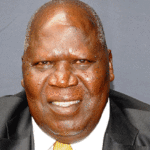The Minister of Health, Jane Aceng has revealed government is in plans to adopt a community health model used by Living Goods.
This followed a recent findings of a randomized controlled trial report carried out in 10 districts in Uganda. It demonstrates a 27 percent reduction in under-five mortality rates in the areas served.
The three-year study evaluated the health impact of the Living Goods and BRAC entrepreneurial community health worker program in Uganda.
Living Goods and partner BRAC recruit, train, equip, and manage Community Health Promoters (CHPs) who go door-to-door educating families on key health behaviors and distributing impactful and affordable products.
In addition to providing health education and access to basic health products for low-income households, the program aims to create sustainable livelihoods for the CHPs, who can earn an income through profits from product sales and small, performance-based incentives for visiting households with pregnant women and newborn children.
Study researchers worked with Innovations for Poverty Action and Abdul Latif Jameel Poverty Action Lab (J-PAL) to carry out the randomized evaluation to assessing the impact of the Living Goods and BRAC program in Uganda. The evaluation included 214 rural villages across 10 districts—involving a total sample size of over 8,000 households.
The study, presented by one of the Principal Investigators, Dr. Jakob Svensson, of Stockholm University, indicates a reduction in under-five mortality by 27 percent, and infant mortality by 33 percent in areas that Living Goods and BRAC CHPs serve.
These reductions were supported by an increase in health knowledge, preventative behavior, case management of malaria and diarrhea, and home visits. The working paper can be found on the Center for Economic and Policy Research.
Speaking during the release of the findings at Golf Course Hotel, Alfred Wise, the Uganda Country Director at Living Goods emphasized the critical role that community health workers play in improving the health of families across the country.
“Through a focus on performance management—including effective supervision and smart incentives—and a reliable supply chain, the program addresses some of the biggest challenges in community health,” says Wise. “We are blessed to receive guidance and support from the Ministry of Health to ensure that CHPs are properly trained and connected with Health Centers for referrals of patients with danger signs or high risks.”
Statistics indicate Uganda’s under-five mortality rate has improved over the past 10 years, but there is still significant room for improvement. Three infectious diseases—malaria, diarrhea, and pneumonia—account for the majority of early deaths. All of these diseases can be either be prevented or treated for less than the cost of a cup of coffee. According to Wise, Living Goods seeks to improve the lives of women and children by delivering frontline health care to those who need it most. By so doing, community health services also reduce the burden on health facilities.
“Our CHPs are trusted member of their communities, providing families with health education, accurate diagnoses and treatments, and referrals to health facilities when needed,” notes Wise. “Families rest assured, knowing they can call their CHP any time of the day, and the CHP will provide them with high-quality, affordable, and convenient care.”
Brian Kyohure a father of three, in Kawempe Division says he prefers getting treatment from the community health promoters because they deliver medicine at his doorstep. “I can get medication for my children at an affordable price,” says Kyohure. “I get good quality medicine and better care than I would from the clinic. And I don’t have to travel or wait in line.”
The CHP program is aimed at improving access to and adoption of simple, proven health interventions in rural and peri-urban areas in the country.
“We know the program works; now we need to scale it so we can save as many lives as possible,” said Wise about the program. “Together with the Government of Uganda, funders, and partners like BRAC, we can ensure that every family has access to an effective, well-stocked, and motivated community health worker.”







